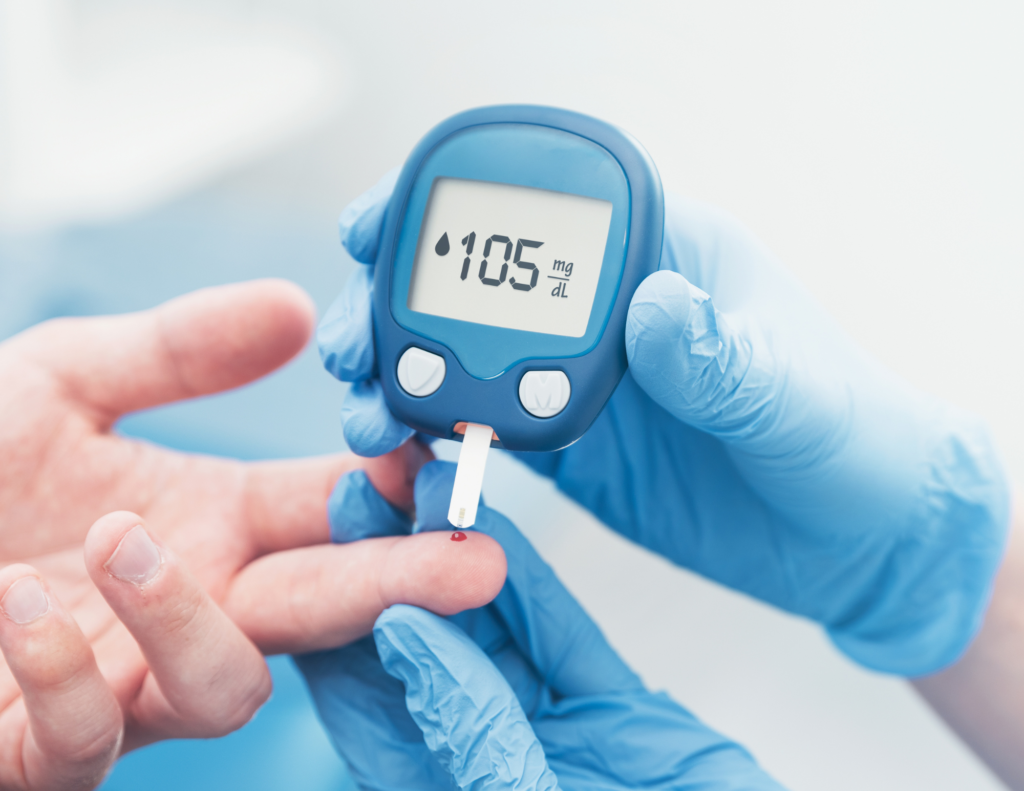Chances are if you’re pregnant, you’ve probably heard about gestational diabetes and that dreaded glucose test. But do you really know what it is?
Education is power my friend so let’s chat about all things gestational diabetes! Is your test coming up soon? Or have you recently tested positive? Whatever your reasoning, I’m glad you are here!
In my time as a labor and delivery nurse, I’ve noticed there is a lot of fear surrounding gestational diabetes and what that means for your pregnancy. I can’t tell you how many friends I have had call me after they received their results in a panic.
And yes it can be scary because the idea of counting carbs, testing blood sugars, and dosing medications is so foreign to many of us. But it doesn’t have to be! Let’s explore gestational diabetes together and hopefully we can both answer your questions and calm some fears along the way.
Disclaimer: This post may contain affiliate links. If purchases are made through these links, I may receive a small commission at no additional cost to you. Thank you for supporting this site.
What is Gestational Diabetes?
Gestational diabetes is diabetes caused by pregnancy. More specifically, the hormones produced by your placenta block the action of insulin causing increased levels of sugar in your blood. Because of your connection to baby through the placenta, your baby’s blood sugars will also be high.
When blood sugars are higher than normal the body cannot function properly. And because your little baby is connected to you through the placenta, they also are put at risk for complications due to high blood sugars.
The risks of GDM according to the American Pregnancy Association include:
- Large birth weight for baby (difficult delivery, need for a c-section, etc.)
- Preterm delivery (NICU time, difficulty breathing, long term health challenges)
- Low blood sugar/difficulty controlling blood sugars after birth
- Increased risk for mom developing Type 2 Diabetes after pregnancy
What Causes Gestational Diabetes?
Aside from what we have already talked about, not a lot is known as to what causes some women to get it and others not. There even is a chance you could have gestational diabetes during one pregnancy, but then not on another.
There are, however, some risk factors that could predispose women to having gestational diabetes during pregnancy:
- Obesity (BMI greater than 25)
- Excessive pregnancy weight gain
- Over the age of 35
- A family history of diabetes
- Excessive central body fat
- Hypertension/preeclampsia
- Polyhydramnios (too much fluid)
How is Gestational Diabetes Diagnosed?
In order to test for diabetes, around 24 to 28 weeks your provider will set up an appointment for you to take the Glucose Tolerance Test (GTT). This test is pretty simple; you are asked to consume a large amount of glucose in a short amount of time and you blood is drawn to see how your body processes that sugar. Most take what’s called the 1-hour test. During this test you consume 50 g of sugar in a short amount of time and then your blood sugar is tested 1 hour later.
If your blood sugar remains within normal limits, you can still process sugar normally and you do not have gestational diabetes. If you don’t pass after the 1-hour, you may be asked to try again, this time for a 3-hour test.
If you blood sugar is higher than desired, then you have developed what is called insulin resistance. Hormones produced by your placenta are interfering with the insulin in your body causing your blood sugar to be high.
If you want more details on what to expect during your glucose tolerance test make sure to check out this article here.
How is Gestational Diabetes Treated?
If you are diagnosed with gestational diabetes, your provider will work with you on a plan of how to monitor and treat your condition. How it is treated will all depend on the severity of your disease, this could increase over time.
In general, the treatment of gestational diabetes involves monitoring your blood sugars at home, maintaining a healthy diet that is low in carbs, and exercise. Your doctor may also prescribe for you insulin or other medications to help keep your blood sugar under control.
It is often helpful to meet with a diabetes educator to help create a plan tailored to your specific needs. If one is not already recommended for you, be sure to ask about a referral to one at your next appointment. These specialists are particularly helpful if insulin injections are prescribed to you as a method of treatment. They will teach you how to properly count carbs, dose your insulin, and give yourself shots at home, which can be a new experience for many pregnant moms.

Does Gestational Diabetes Go Away?
Good news is gestational diabetes is only temporary! In fact, after you deliver your placenta, you are essential cured. This is because it was the hormones that are produced by the placenta that cause the insulin resistance in the first place. Without it, you no longer have issues with high blood sugar.
Can Gestational Diabetes Be Prevented?
This is a complicated answer. According to the risk factors above, there are definitely some things you can do to decrease your risk. This includes maintaining a healthy diet and exercise regimen during to avoid excessive weight gain and body fat. However, most of the risk factors are really out of your control.
And even if you were the healthiest you could possibly be during pregnancy, you still may get gestational diabetes. I hate to say it is up to luck of the draw, but in some cases it is. I have had plenty of patients that had it for some pregnancies and not for others. At the end of the day, there really isn’t a lot that science has discovered as to why gestational diabetes occurs in some women.
This is why screening is so important, even if you haven’t had gestational diabetes for previous pregnancies. It truly can happen to anyone!
Related: Ultimate Second Trimester Checklist
Gestational diabetes doesn’t have to be scary. Yes, it definitely does complicated things a bit, but there are so many resources out there for you! Take advantage of them and you will do just fine.
At the end of the day we all want a safe and healthy pregnancy right? So do your best to eat healthy and move your body as much as possible, regardless of your glucose tolerance test results. Sugar isn’t the enemy when enjoyed in moderation.
You are doing exactly what you should right now by educating yourself. Keep up the good work. And don’t forget to look into what else is happening during your second and third trimesters.
As always, you’ve got this mama!








